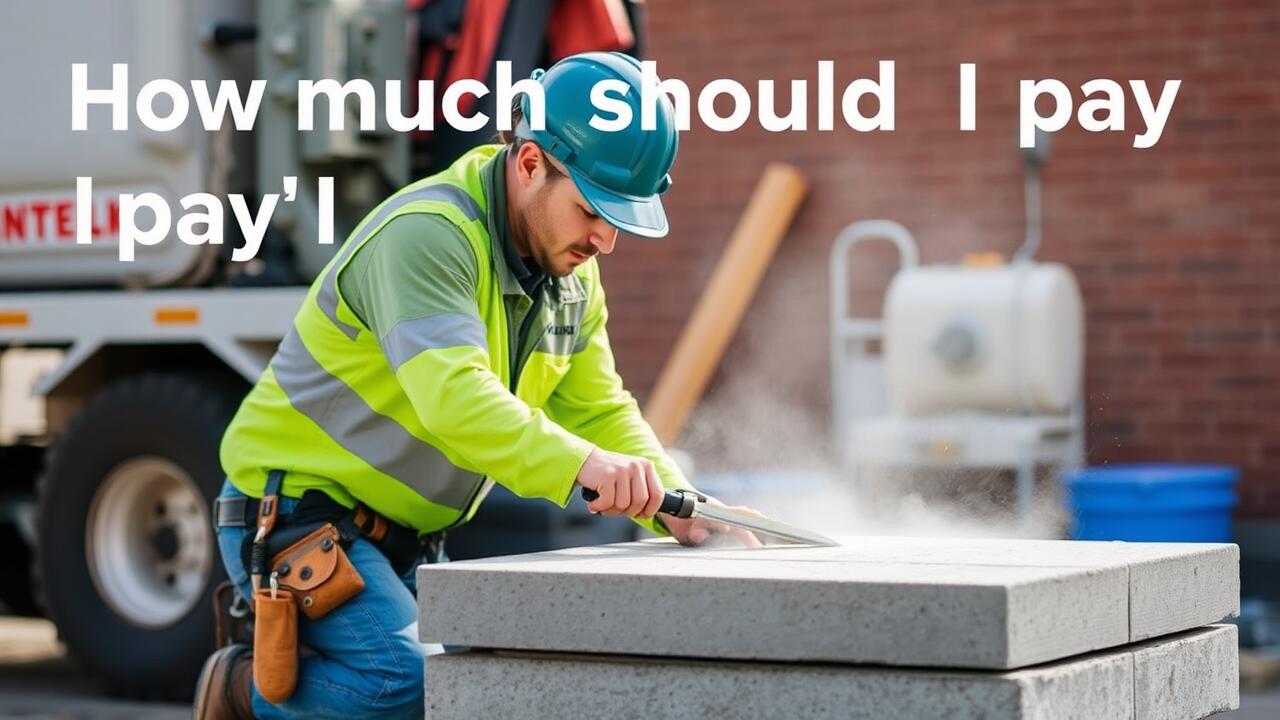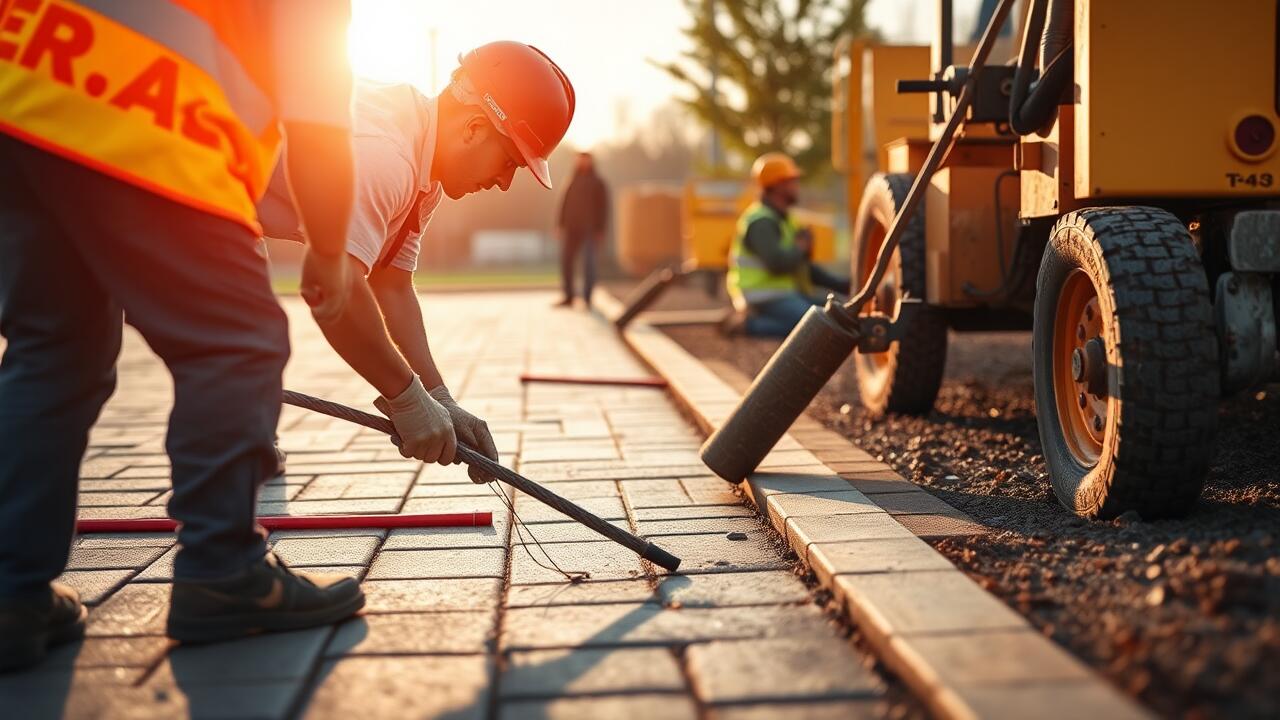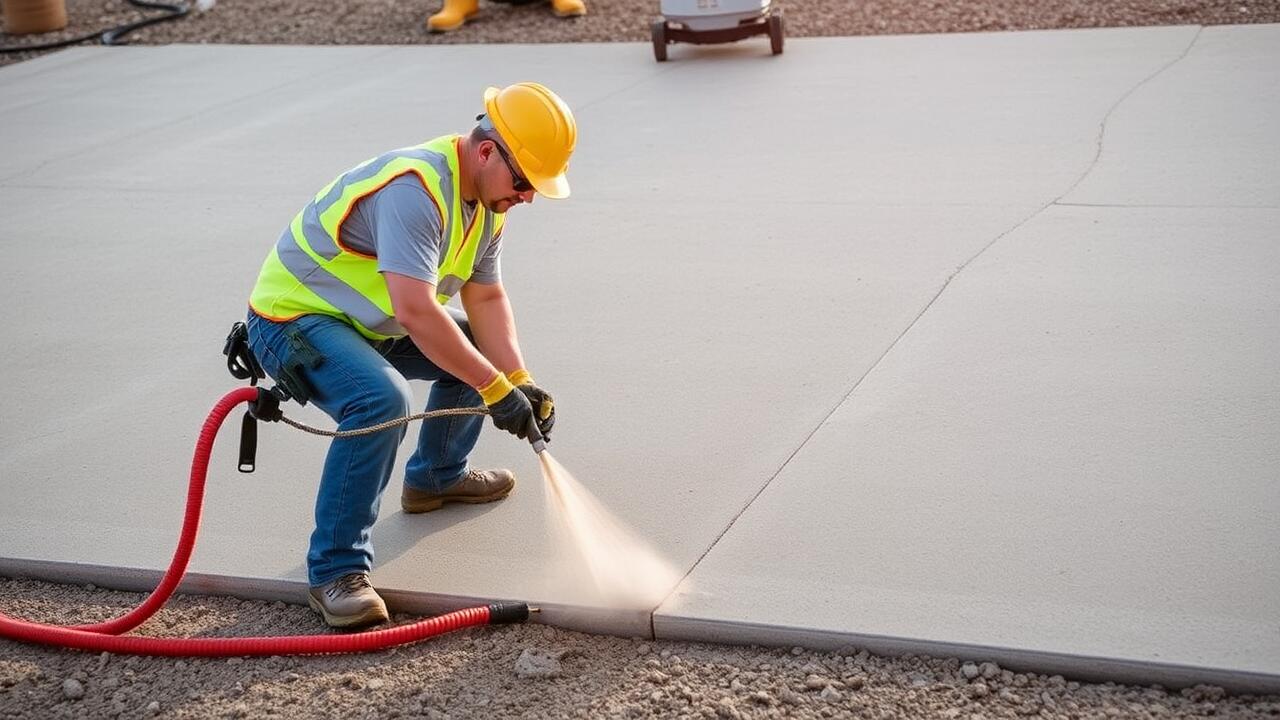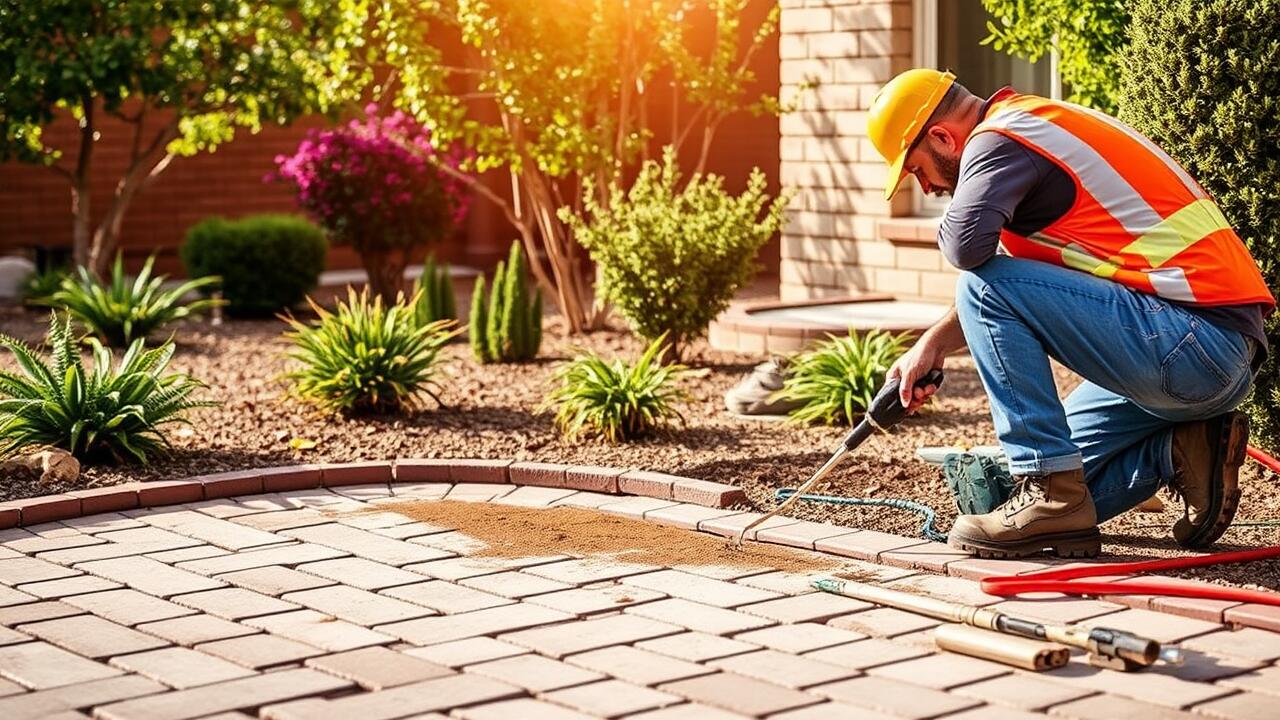
Discounts and Cost-Saving Strategies
Finding discounts and utilizing cost-saving strategies can significantly reduce the price of your concrete project. Many suppliers offer promotions or seasonal discounts that can help lower the overall cost. Keeping an eye on local deals and signing up for newsletters from concrete suppliers can provide you with timely information about upcoming sales. When looking online, search for "Concrete Paving near me" to connect with local businesses that might have exclusive offers or loyalty programs.
Another effective approach is purchasing concrete in bulk. Many suppliers offer reduced rates when you buy larger quantities, making it a viable option for extensive projects. Additionally, collaborating with friends or neighbors can allow for joint purchases, enabling you to benefit from bulk pricing without needing to cover the entire cost alone. Exploring options with local contractors may also yield cost-effective solutions, as they often have established relationships with concrete suppliers.
Bulk Purchases and Promotions
Purchasing concrete in bulk can lead to significant savings. Many suppliers offer discounts for larger quantities, often incentivizing customers to plan larger projects. This strategy not only reduces the overall cost per yard but also minimizes delivery fees, as transporting a larger volume generally proves more economical than making multiple small orders. When searching for "Concrete Paving near me," it's important to ask about bulk pricing options.
Promotional offers can also contribute to lowering costs. Some suppliers run seasonal sales or have loyalty programs that reward frequent buyers with discounts. Staying alert to these promotions can result in substantial savings, especially if your project requires a considerable amount of concrete. To maximize savings, combine bulk purchasing with any ongoing promotions while securing a reliable supplier in your area.
Hiring Professionals vs. DIY
When deciding whether to hire professionals or tackle a concrete project yourself, several factors come into play. Hiring experts usually ensures high-quality work, timely completion, and adherence to local codes. Professionals often have access to better equipment and materials, which can affect the durability and finish of the concrete. Searching for "Concrete Paving near me" can yield a variety of local contractors with different levels of experience and specialties, allowing you to find someone who fits your specific needs.
On the other hand, taking a DIY approach can save money and provide a sense of accomplishment. Doing the work yourself allows for greater flexibility in scheduling and potentially lower overall costs. However, potential pitfalls, such as miscalculating the amount of concrete needed or handling the mixing and pouring improperly, can result in an inferior finish. If you have the knowledge and skills required, a DIY project can be rewarding. If not, weighing the long-term benefits of professional-quality work against the immediate savings of a DIY effort is crucial.
Cost Implications of Each Approach
When considering whether to hire professionals or tackle a concrete project yourself, the cost implications can vary significantly. Hiring a contractor typically results in higher initial expenses, as labor costs and overhead will be factored into the overall price. However, professional services often come with guarantees and warranties, ensuring quality and durability in the finished product. This might be worth the investment, especially for larger or more complex projects where precision is crucial.
On the other hand, a DIY approach can save you money on labor, but it requires a thorough understanding of mixing and pouring techniques. Mistakes can lead to additional costs if repairs or rework are needed. It’s essential to account for expenses like tools and equipment rental. Local inquiries, such as searching online for "Concrete Paving near me," can provide insights on material costs and accessibility, helping you further refine your budget based on your chosen method.
Estimating the Amount of Concrete Needed
Estimating the amount of concrete needed for your project is crucial for ensuring you order the right quantity and avoid unnecessary expenses. Start by measuring the area you plan to cover. Use a tape measure to find the length and width of the space. For simple rectangle or square areas, multiply these dimensions to find the total square footage. In the case of circular areas, apply the formula for the area of a circle, which is π times the radius squared. Knowing the depth of the concrete pour is also essential, as it factors into the overall volume calculation.
Once you have the dimensions, you can convert the area into cubic yards. Since concrete is typically sold by the yard, understanding how to convert cubic feet to cubic yards will help. There are 27 cubic feet in a cubic yard, so divide your total cubic feet by this number to determine how many yards you’ll need. If you're unsure about the calculation or searching for "Concrete Paving near me," local suppliers can often provide assistance in estimating your needs based on your specific project dimensions.
Calculating Dimensions for Your Project
To accurately estimate the amount of concrete needed for your project, start by measuring the dimensions of the area you intend to pave. This involves determining the length and width for rectangular or square areas, while circular spaces require measuring the radius. Once you have these dimensions, calculating the total area becomes straightforward. Multiply the length by the width for rectangles, or use the formula for the area of a circle (πr²) for circles. Converting the measurements into square feet ensures compatibility with how concrete is typically sold.
After establishing the area, consider the desired thickness of the concrete layer. A standard thickness is around four inches for driveways or sidewalks. To find out how many cubic yards of concrete you'll need, multiply the area by the thickness in feet and then divide by 27, as there are 27 cubic feet in a cubic yard. For specific projects, searching "Concrete Paving near me" can help identify local suppliers and get a better idea of total costs based on your calculations.
FAQS
What is the average cost of a yard of concrete?
The average cost of a yard of concrete typically ranges from $100 to $150, depending on factors such as location, concrete type, and market conditions.
Are there discounts available for purchasing concrete in bulk?
Yes, many suppliers offer discounts for bulk purchases. Buying multiple yards of concrete at once can lead to significant savings compared to purchasing smaller amounts.
Should I hire a professional or do it myself when working with concrete?
The decision to hire a professional or tackle a DIY project depends on your skill level, project complexity, and time availability. Hiring professionals can ensure quality and save time, while DIY can be more cost-effective for simpler tasks.
How can I estimate how much concrete I need for my project?
To estimate the amount of concrete needed, calculate the volume of the area you want to fill by multiplying the length, width, and depth (in feet), and then convert that volume to cubic yards by dividing by 27.
What are some cost-saving strategies for purchasing concrete?
To save on concrete costs, consider bulk purchases, look for seasonal promotions, compare prices from different suppliers, and try to schedule your project during off-peak seasons when demand may be lower.


